Sessions / Zoom 2
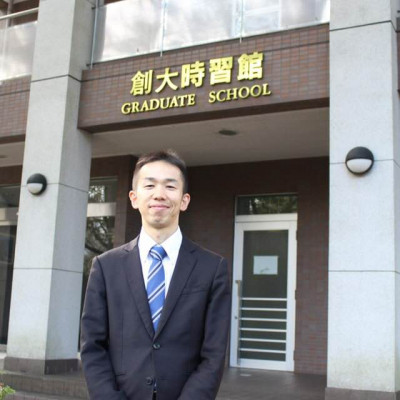
How to Enhance Japanese University Students’ Self-Esteem. ~ An Attempt on Self-Affirmation in Written Form ~ #1342
Nowadays, a growing number of institutions and educators in English Language teaching (ELT) has been highlighting its psychological aspect. Particularly, self-affirmation methods that contain psychological effects on students’ academic achievement are noticeable in a recent study (Cohen et al, 2009). The purpose of this study is to investigate whether a regular self-affirmation in written-form can improve the degree of self-esteem, specifically, Global Self-Esteem (GSE) and Foreign Language Self-Esteem (FLSE). The research design is quantitative research using online surveys as the main instrument. The participants of this study were 55 university students who were from three different faculties of a private university in Tokyo. The research examined and compared their GSE and FLSE of two experimental groups and a control group at the beginning and the end of the semester. Whereas self-affirmation in written form was mandatory for the experimental groups in every class, the control group was not asked to do any self-affirmation. The results showed that the students’ self-esteem in the experimental groups was boosted by self-affirmation in written-form to some extent. The findings of this study will benefit numerous educators and students since the enhancement of students’ self-esteem is a profound source for their language learning.

Understanding JTE Attitudes to Lifelong Learning #1257
Lifelong learning is a field that is attracting attention in Japan's aging society, as evidenced by the existence of a Special Interest Group with this title within the Japanese Association of Language Teaching. However, there are few studies that treat teachers themselves as lifelong learners. Given that national curriculum standards are constantly revised and that teachers must necessarily adapt and develop, the posture of teachers toward lifelong learning should be better understood. The presentation covers findings from semi-structured interviews of Japanese teachers of English (JTEs) versus other-subject teachers about their attitudes to lifelong learning. The Jefferson Scale of Physician Lifelong Learning (Hojat et al., 2010) was adapted to the educational domain and translated into Japanese. Responses of eight participants (four JTEs and four other-subject teachers) to items on this scale were used as the start point and structure for the interviews. Particular focus was given to qualitatively exploring responses not at the center point of the scale for each item. The rationale for this was that, unlike quantitative research which tends to search for generalizations based on central tendency, qualitative research finds its most revealing points of departure, and therefore its place as a method, in the more extreme, or outlying, responses.

Critical Thinking and Writing: Preparing for EMUs #1310
With the current focus on globalism in Japanese higher education, preparing students for English-medium universities (EMUs) is an important goal for language educators in Japan. In particular, students must be prepared for academic writing assignments which require the demonstration of specific critical thinking skills. Such assignments, however, present challenges to international students, and Japanese students in particular, for a variety of reasons related to cultural and linguistic differences, second language proficiency, and previous educational experience. This presentation will address the critical thinking skills that are emphasized in English-language academic writing and factors that can affect the demonstration of those skills. In addition, the presenter will suggest ways that teachers can help students develop their critical thinking skills and apply them to academic writing.

Teaching Presentations Remotely and Engagingly #1332
Presentations are performance art and are meant to be done in person but since the beginning of last year, we have not been able to do so. A speaker, after a good amount of preparation, conveys a message to an audience in an entertaining and meaningful way with limited interaction between the two. Group Discussion (debate) is a hefty benchmark in many communication classes because they allow for a lot of spontaneous (unscripted and with less preparation) interaction and student agency which makes for more meaningful communication. However, the difficulty level is much higher. Aclan & Aziz (2015) found that when students lack the platforms to practice their English in a more meaningful and critical way (as many students do in Japan) that debate is a practical tool for developing oral communication. Presentations can be used to scaffold debate and allow students to create a foundation of information and vocabulary with which they can discuss. Students explore different topics and create presentations for them and then debate while the teacher stands to the side and only steps in when necessary. Additionally, this presentation will show how Zoom as an application was perfectly suited for this task.
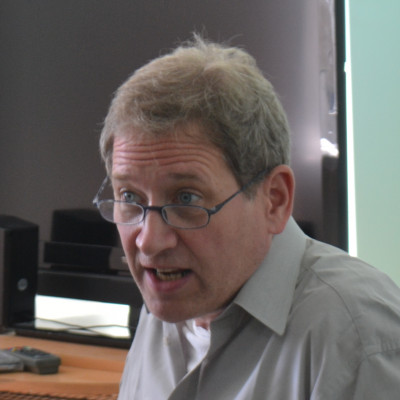
Teaching Experiences and Covid-19: A “Zoomed Out” Retrospective (in Progress): An ABAX POV #1612
Visit the Abax pageAll the upheavals brought about by the ongoing pandemic resulted in huge changes for teachers, students, schools, administrators and all the logistics businesses that support the “classroom product”. This (hopefully) interactive discussion will look at many of the measures taken by various stakeholders to minimize negative effects and support teachers trying to provide students with the best educational experiences possible. Discussed will be a “zoomed out” look at some of the actions taken, a look at how digital technologies have evolved, and even a look “outside” the field at some of the logistical aspects, and how these continuing issues are impacting the class. Lastly, and a look to the future. Participants should come out of this discussion with perhaps a broader understanding of all the machinations that take place behind the scenes that influence what happens in the classroom.

Who we are, what we do, & how to get involved #1242
This forum will bring together Teaching Helping Teachers (THT) members, country coordinators and other interested parties. Invited speakers from some of the THT programs will talk about their experiences with THT, recent workshops/programs and plans going forward. Due to COVID-19 the various THT 2020 programs were canceled or moved online, and we would also like to share lessons learned and future direction for our SIG.
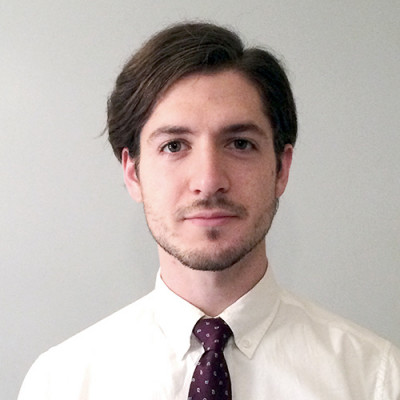
Managing Assessment Data in Windows Excel & Google Sheets #1299
Digital literacy is an ever evolving and increasingly necessary aspect of education. The recent transition to synchronous, asynchronous, and even hybrid classes in the COVID-19 era has led to a reliance on a multitude of online services (Xreading, MReader, Flipgrid, Edmodo) and web-based learning platforms (Google Classroom, MS Teams, WebClass, Blackboard, Moodle) – all with their own unique User Interface (UI) – increasing the difficulty of learning to navigate the services and manage assessment data. Additionally, free online gradebooks are not always reliable. Notably, Engrade, once free and popular, now requires complex registration and pricing options, and Learnboost, a once reliable Engrade alternative, has been dropped altogether. Microsoft Excel and Google Sheets are both deep calculation tools, but the basics can be easily learned and applied to assessment data management. This paper seeks to demonstrate the basic workflow of Excel and Sheets by reviewing three simple formulas (adding, multiplying, and dividing), simple organization options (spacing and color), and finally how to create a usable template and mock gradebook with weighted categories. Participants will thus be further prepared to effectively approach Excel and Sheets to practically manage assessment data.

The Impact of CLT on Teacher Beliefs in Japan #1349
The promotion of communicative language teaching (CLT) in Japan by the Ministry of Education, Culture, Sports, Science and Technology (MEXT) can be traced back to the 1989 Course of Study in which it was stated English should be taught for the purpose of communication. To determine whether MEXT’s 30-year endorsement of CLT has been successful, we need to examine the beliefs and practices of the teachers responsible for interpreting those policies.
I researched teachers’ level of approval of CLT activities and the factors that influence their implementation through a questionnaire responded to by 21 Japanese teachers of English (JTEs) and 29 assistant language teachers (ALTs) at junior high schools. The results indicated that while teachers approve of CLT activities they tend to rely on the audio-lingual method and yakudoku, a translation-based method. The factors influencing teachers’ classroom practice vary between JTEs and ALTs, with JTEs reporting entrance examinations and students’ expectations as highly influential, whereas ALTs were concerned with the students’ speaking ability and the class size. By comparing these results to Gorsuch’s (2001) study it can be concluded that though CLT activities are viewed more favorably than 20 years ago, the factors limiting their implementation remain largely the same.
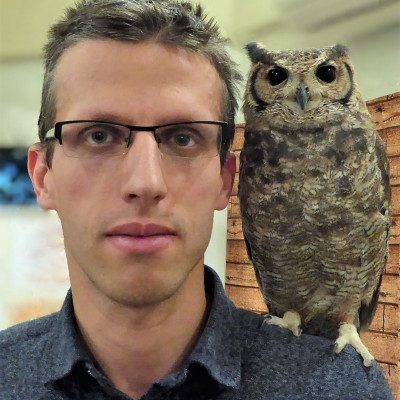
Re-examining translanguaging in plurilingual classrooms #1373
The past two decades have witnessed an exponential surge of interest in pedagogical translanguaging (TRLNG), understood as a bi- or multilingual resource-based set of pedagogical practices (traditionally for emergent bilingual students acquiring the societally dominant language) where the medium of instruction is different from the home language(s) of the learners. However, despite the current world fame and popularity of the concept, it is not without problems, which will be examined based on an overview of current pedagogical literature (k = 110; Paradowski 2021, under review). Among the many caveats, we shall see how TRLNG may be less transformative than has been suggested and how the demographics—and language repertoires—of teachers often fail to align with those of the student population. We will also see that TRLNG practices may unintentionally reproduce disadvantages, with language singletons in particular facing steeper challenges. Moreover, not all students appreciate the opportunity to use their home language(s), and TRLNG may actually cause a decrease in well-being. Finally, foreign language classrooms in particular require the reconciliation of many conflicting goals. The talk will conclude with a recommendation of more critically aware and reflective plurilingual pedagogies that always take into account the circumstances and ecologies of the classroom and the subjectivities of the students.
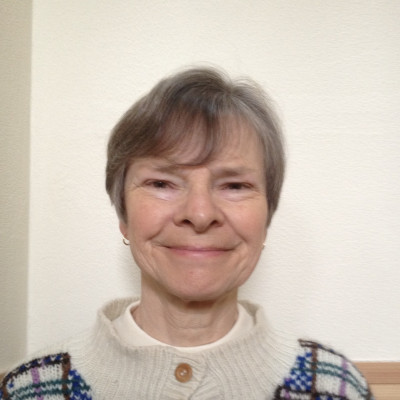
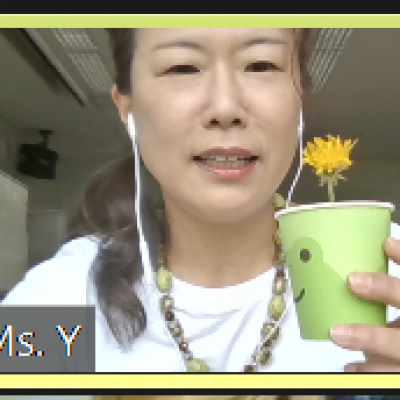
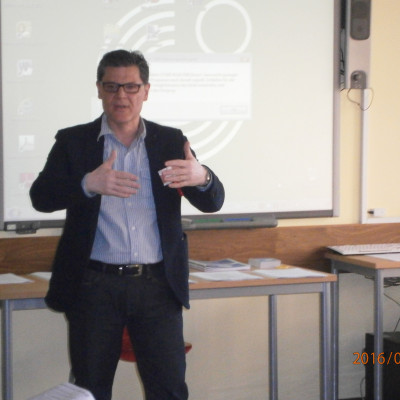



Where Brain Sciences Intersect Language Teaching #1232
The Mind, Brain and Education forum will introduce a variety of brain science findings that can inform language teaching approaches and methods. People new to the field will have an opportunity to find out how to get started in learning about brain sciences by joining a session which will focus on recommendations for introductory talks and print publications. For long-term members, there will be opportunities to discuss in depth topics of interest, and for those who would like to learn about recent findings and teaching innovations, there will be presentations on different topics. We will hold three 25-minute rounds of concurrent presentations and discussions. The speakers and topics are: Megumi Yoshieda Appreciating greenery and sharing the growth during remote learning: an example of experiential learning using Instagram James (Dimitri) Maroulis True Grit? Junior Koch Specific Learning Difficulties Mohammad Khari Cultural Context: Putting the Genie of Bias Back in the Bottle Curtis Kelly The Connected Classroom Amanda Gillis-Furutaka The three stages of learning and the role of a teacher
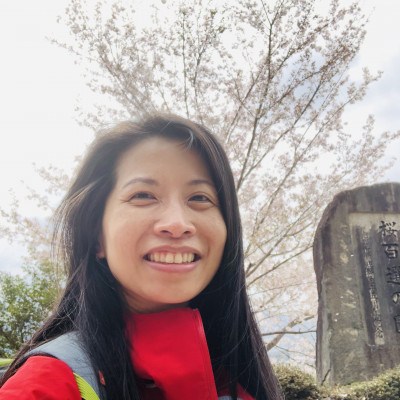
The effectiveness of using debates in language classrooms to improve learner confidence and motivation #1263
In the harmonious Japanese culture, Japanese students are usually perceived as reluctant and uncomfortable posing questioning to others and sharing their opinions. Surprisingly, multiple studies showed that Japanese students felt confident in sharing their opinions in English after debate activities. This presentation will explore how debates can cultivate critical thinking skills in class and in turn how in-class group negotiation activities (or debate activities) cultivate learner motivation and confidence in expressing their opinions in English. The presenter will also demonstrate some routine activities that prepared learners for the group negotiation activities. The learners’ reflection surveys indicate their improved confidence and motivation through negotiating and communicating their ideas in groups. It was also encouraging to understand learners’ beliefs about the practicality and usefulness of the skills they learned through the activities for their future job performance. At the end of the presentation, the presenter will share some challenges and discuss solutions.
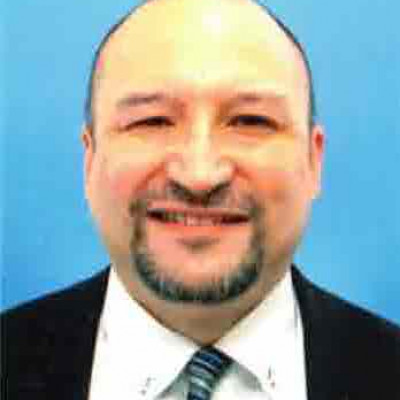
Integrating US Common Core Standards in Eikaiwa #1363
Eikaiwa, or English conversation, teachers in Japan know “Presentation, Practice, and Production,” a popular strategy worldwide in TESOL. Here, an alternative approach in teaching eikaiwa to young learners is proposed. A common core standard for young English language learners by the Florida Department of Education was implemented into five continuous, 50- minute lessons for a class of five students, grades 1-3, as part of the practicum stage to obtain K 12 ESOL Florida teaching certification. The standard was unpacked and integrated into a lesson plan about “routine” that was dictated by the eikaiwa. A textbook series common throughout Japan was required; restrictions on content taught is common practice in eikaiwa in Japan. In addition, the teacher followed effective teaching principles outlined by the teaching certification program. The results showed four of five students achieving perfect scores on the summative assessment, which was based on the standard. In addition, students were able to use the language about “routine” required by the eikaiwa. This study reveals how teachers can become more effective by modifying typical eikaiwa lessons by incorporating content standards and using effective teaching principles. Furthermore, a path toward teacher licensing through distance is presented along with a discussion about future standards-based TESOL curriculum in eikaiwa.


Emotional Dimensions of Teaching Foreign Languages: Existing Studies and Future Perspectives #1320
A sudden shift to Emergency Remote Teaching (ERT) that occurred in the previous year 2020 due to the COVID-19 pandemic undid all the familiar pedagogic algorithms of language classroom management. Along with new online teaching communicative pedagogical strategies and accommodations, a relatively new dimension has started gaining the attention of educators. Massive changes in the new pedagogical reality sturred a new range of powerful emotions-isolation, fear of the unknown, anxiety. Affected by the above, I have decided to embrace the situation and start searching for practical solutions in the existing pre-pandemic research on the matter. My presentation is aiming to provide a summary of my search and can be useful for fellow educators looking to reduce the emotional complexity in their teaching situations. I will summarize diverse teaching contexts with emotional issues and solutions as described in the edited volume "The Emotional Rollercoaster of Language Teaching" by Christina Gkonou, Jean-Marc Dewaele, and Jim King. I hope to keep my presentation interactive by encouraging the audience to share their emotional experiences and engage in the discussion of future research perspectives.


Generating Ideas and Paragraph Writing in Media Literacy Education #1260
In media literacy education, students are encouraged to interpret the messages that are delivered in media. This requires careful observation of media sources and analysis of the meanings of these observations, which requires students to engage in critical thinking in order to generate ideas. In this presentation, a critical thinking approach to paragraph writing in a media literacy education course will be introduced. This approach includes a pre-writing activity in which students write about their background knowledge on the topic of each lesson. Then students make careful observations of advertisements and take notes of these observations. These notes, in turn, are analyzed in group discussions to share their interpretations of the intended messages of the advertisements. Students then use ideas from their discussions to synthesize a logically organized paragraph using their observations as supporting evidence. Doing this, students not only enhance their critical thinking skills, but also learn paragraph writing skills. In this presentation, examples of student work will be presented. Also, suggestions for encouraging critical thinking skills in media literacy activities will be provided.
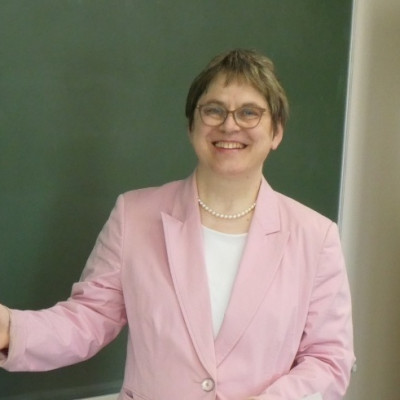
Multilingual Cafe at PanSIG 2021 #1523
This is the Multilingual Café: meet and chat in your favorite language. The Multilingual Cafe provides a space to meet and share using languages other than English, creating a community of practice. The languages available depend on those attending on the day (for example French, German, Spanish, Thai, Hungarian, Chinese, Tagalog and many more). Interested? You are welcome to join! Lingua Franca are English and Japanese. Languages available depend on the participants.

Critical Thinking SIG Forum: CT in the Curriculum #1319
The 2021 JALT Critical Thinking SIG forum at PanSIG will bring presenters together to share ideas on integrating critical thinking into your classroom, course, and even curriculum. All speakers will share ideas on activities, prints, and even task-based learning that will help your students develop critical thinking while also improving their language ability. From spoken conversations to writing production, you will find something of interest in this forum. Join us for an event full of sharing ideas focused on helping your students improve their thinking abilities and their language skills.

Fostering Engagement with Team-Based Learning in Larger Japanese University Classrooms #1248
This presentation introduces an action research project conducted during the 2020 Fall semester that was aimed at exploring the benefits and challenges to implementing a team-based learning (the other TBL) approach in larger online and face-to-face English classes at university in Japan. The participants in this study were a group of fifty-six students enrolled in an elective culture-focused Content and Language Integrated Learning (CLIL) course taught by the presenter. This interactive talk starts with some contextual background, and goes on to outline the mixed-methods research design before offering an overview of how the semester unfolded. Findings and discussion are then provided to highlight key issues related to using TBL in this context. Due to COVID-19, four out of the fifteen class meetings were conducted synchronously on Zoom, and those adjustments and lessons learned are also presented. It is hoped that this research might further inspire language teachers in a range of contexts to experiment with team-based learning and other active learning approaches in their language classes.